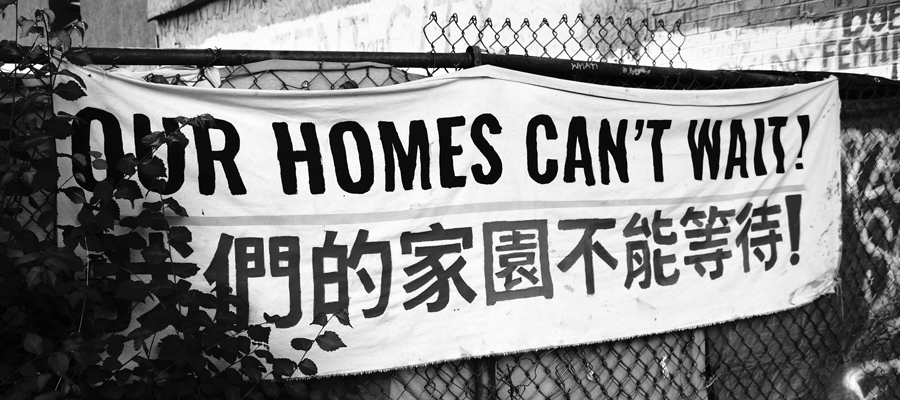UN raps our housing record
In mid February, a report was released that received very little attention, but should have: The report of the UN’s Special Rapporteur on Adequate Housing’s Mission to Canada (hat tip to Jean Swanson for drawing the final report to my attention; it can be found here; just scroll down to the “Mission to Canada”.)
The UN Special Rapporteur, Miloon Kothari, visited Canada for a few weeks in October 2007, as part of the UN’s efforts to ensure countries are living up to their international obligations to respect economic and social rights. Mr. Kothari’s mission focused on four areas: homelessness, women and their right to adequate housing, Aboriginal populations, and notably, the possible impact of the 2010 Olympic Games on the right to adequate housing in Vancouver.
The Special Rapporteur’s report is a very worthwhile read (and very concise). He emerged from his mission with very keen insights and an excellent historical understanding of Canada’s housing record. And he makes very astute observations about the jurisdictional buck-passing in Canada that blocks progress on housing.
He lauds Canada’s strong run of building new social housing between 1973 and 1993, but laments how little progress has been made since. Consequently, “While 40 per cent of all housing in the Netherlands is social housing, 22 per cent in the United Kingdom and Sweden, 14 per cent in Germany France and Ireland, and 10 per cent in Finland, Canada has only 5 per cent of its overall housing stock as social housing.” He was clearly particularly taken aback by Vancouver’s Downtown Eastside, and alarmed by the state of Aboriginal housing.
His recommendations include: that all levels of government recognize and legislate the right to adequate housing; that Canada commit to a comprehensive and coordinated national housing strategy with long-term and stable funding; re-embark on large scale building of social housing; and this:
Reducing homelessness and the number of people living in inadequate housing requires Canada to adopt a comprehensive and coordinated national poverty reduction strategy. Whilst three provinces have already taken important steps in this direction, the federal government should also be active in this area. This must include a review of the income available through social assistance and minimum wage in light of actual housing costs and a timeline for ensuring an adequate income to cover housing costs. (p. 26)
That recommendation clearly lends support to the campaign currently underway in BC, calling on provincial political parties to commit to a poverty reduction plan with legislated targets and timelines to reduce poverty and homelessness. For more on that (and to add your name to the call), see here.
Topics: Housing & homelessness, Poverty, inequality & welfare



